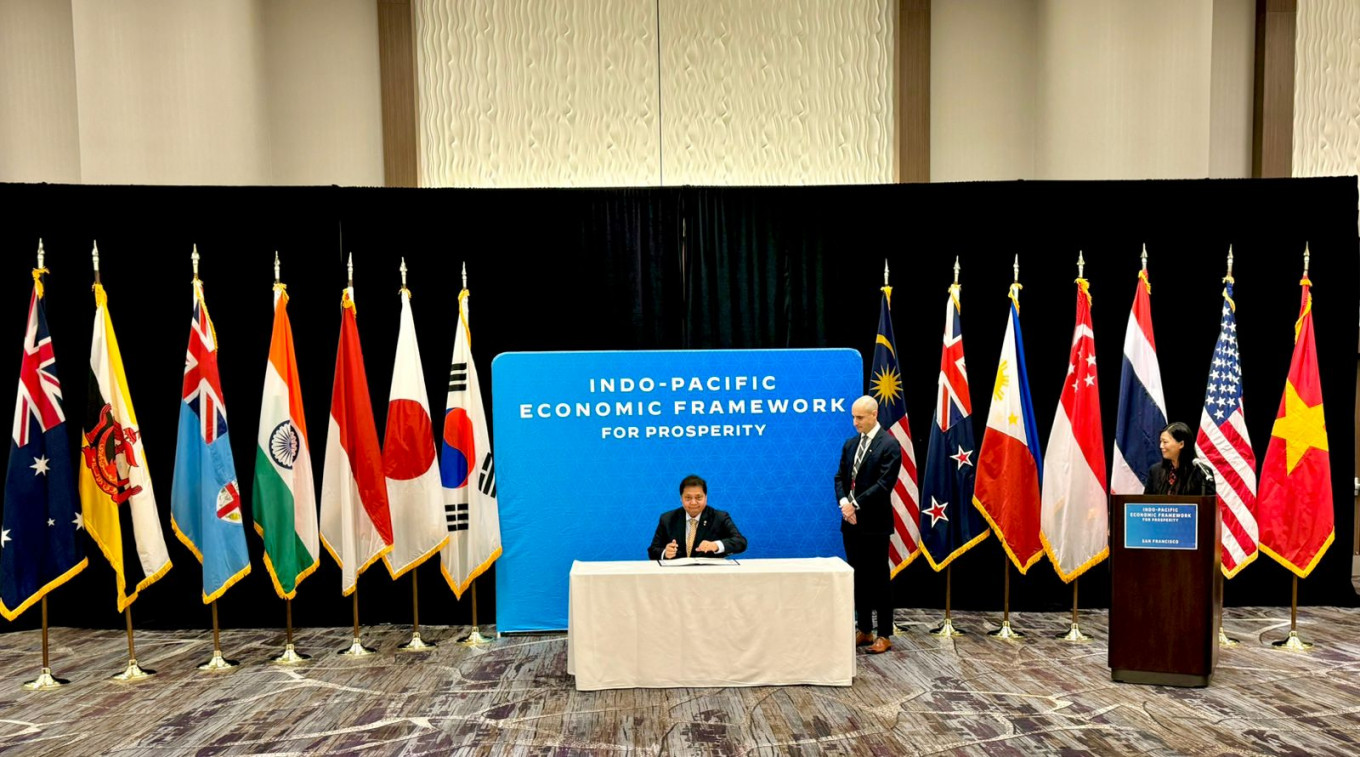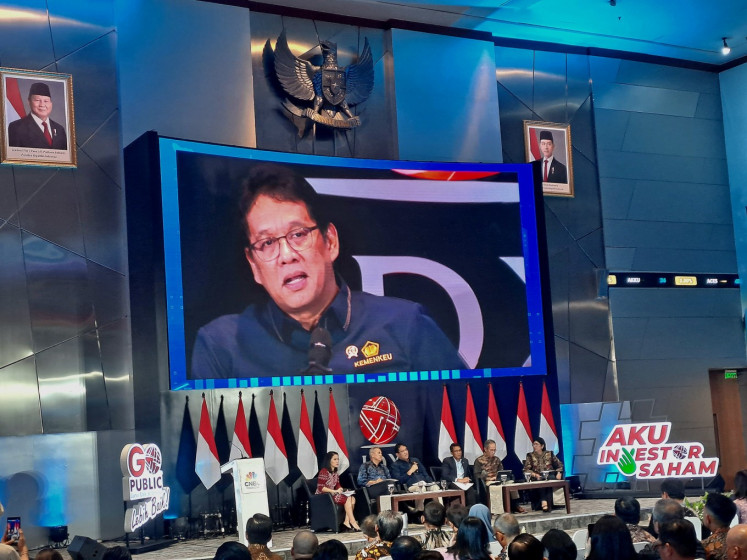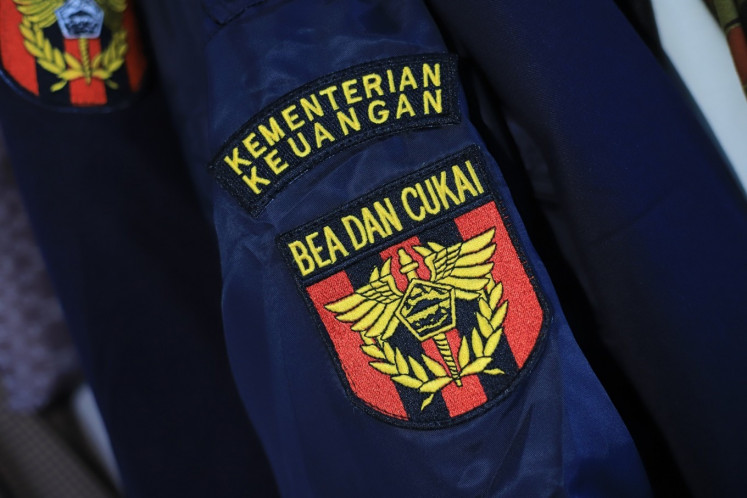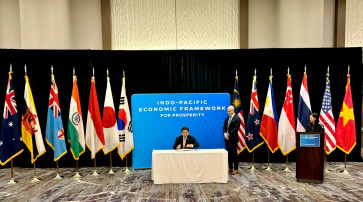Popular Reads
Top Results
Can't find what you're looking for?
View all search resultsPopular Reads
Top Results
Can't find what you're looking for?
View all search resultsGovt rebuts claim labor concerns holding up IPEF
"The labor issue has been agreed upon in pillars II to IV," Edi told The Jakarta Post on Saturday.
Change text size
Gift Premium Articles
to Anyone
 Coordinating Economic Minister Airlangga Hartanto signs the supply chain agreement at the Third Indo-Pacific Economic Framework Ministerial Meeting (IPEF-MM) along with economic ministers from 13 other countries in San Francisco, the United States, on Nov. 14, 2023. (Coordinating Ministry for Economic Affairs of the Republic of Indonesia/-)
Coordinating Economic Minister Airlangga Hartanto signs the supply chain agreement at the Third Indo-Pacific Economic Framework Ministerial Meeting (IPEF-MM) along with economic ministers from 13 other countries in San Francisco, the United States, on Nov. 14, 2023. (Coordinating Ministry for Economic Affairs of the Republic of Indonesia/-)
T
he failure by negotiating countries to finalize the Indo-Pacific Economic Framework (IPEF) last week is not connected labor standards, the Indonesian government has said.
“That has no relevance [here], as the labor issue has been agreed upon in pillars II to IV,” Edi Prio Pambudi, undersecretary for international cooperation at the Office of the Coordinating Economic Minister, told The Jakarta Post on Saturday.
He continued, “The IPEF negotiations aim to align policy standards and rules while adhering to each country’s domestic laws.”
Previously, Reuters reported that Indonesia and neighboring Vietnam had declined to commit to strong labor and environmental standards with binding enforcement provisions under IPEF, impacting the outcome of the negotiations.
Agreement has been achieved on three of the four IPEF pillars, which pertain to supply chains, clean energy and corporate governance, respectively, but not yet on the first pillar, concerning trade.
According to a “Fact Sheet” released by the White House last Thursday following negotiations in San Fransico, the United States, “IPEF partners have made progress on and are committed to continuing negotiations to facilitate trade.”
The statements note advancing “workers’ rights through strong and enforceable labor standards” as part of those talks.

















